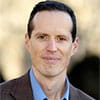 In the aftermath of Jesus' death, a frightened Peter and a group of dispirited disciples scattered, lost and unsure of what to do. Their first response was to hide, and only after Jesus' resurrection and ascension did they re-gather during the celebration of the feast of Pentecost and receive the conviction to spread the news with confidence and great joy. Luke the Evangelist describes this new fervor as a gift of the Holy Spirit, which enabled Jesus' followers to speak fearlessly to people of every nation and language, regardless of their immediate success.
In the aftermath of Jesus' death, a frightened Peter and a group of dispirited disciples scattered, lost and unsure of what to do. Their first response was to hide, and only after Jesus' resurrection and ascension did they re-gather during the celebration of the feast of Pentecost and receive the conviction to spread the news with confidence and great joy. Luke the Evangelist describes this new fervor as a gift of the Holy Spirit, which enabled Jesus' followers to speak fearlessly to people of every nation and language, regardless of their immediate success.
The history of Christianity is rife with similar examples of followers being alternatively fearful and bold, faltering and leading, in the face of the challenges of the culture in which they lived. Some disciples remained hidden, others became martyrs. Some caved into external pressures, such as the early 4th-century traditores who handed over sacred texts to Rome during the persecutions of Diocletian. Others, like the 2nd-century convert-apologist Justin Martyr, proclaimed the gospel, even in the face of grave threats and eventual death. Followers of Jesus, in short, have always had to navigate the difficult questions of how to live with faith in cultures that do not understand what that faith really entails.
David French points to the most recent and most evident example (at least for Americans) of this ancient pattern. He suggests that Catholics and Mormons are leading in efforts to protect unborn human life and marriage, while Evangelicals are faltering in these efforts. He writes very positively, admiring the willingness of Catholics and Mormons to work out the public implications of faith even in the face of the scorn of the cultural elite.
I appreciate French's thought-provoking analysis, but wish to suggest a slight re-drawing of the lines of cooperation. Yesterday the primary lines in the Western world were between different religious congregations. Today, though, the lines are epistemic, by which I mean rooted in different ideas about how to come to a certainty about truth claims.
More practically, this thesis means that the old lines were between (say) Catholics and Protestants, or between Mormons and Evangelicals, or between Mainline Protestants and Evangelical Protestants, and so on. The new lines are between those who want to take their cues from secular society and those who want to take their cues from faith.
To put it baldly: some believe abortion and marriage are issues to be decided by popular opinion (regardless of faith), and some believe abortion and marriage are issues to be rooted in faith (regardless of popular opinion).
French is critical of what he sees as a failure among Evangelicals to take strong countercultural stands, to root themselves in the truth revealed by God through Jesus. I cannot speak for Mormons, but I can observe, in light of many studies of the attitudes of Catholics in recent decades, that the same critique applies to Catholics. Those who have the courage to speak up against abortion are a distinct minority. The reason, I think, is that abortion is the gravest and most divisive issue that forces discerning Christians to overtly declare their opposition to prevailing cultural norms, even when the philosophical, theological, ecclesial, and ethical grounds for that opposition are virtually unquestionable. French is certainly correct to point to the way that a critique of the culture of death is written into Catholic DNA. But he is overly optimistic, failing to assess how many Catholics manage to acknowledge that DNA without ever rising to the level of courageously making it mean anything in the public sphere. As with the earliest disciples of Jesus, sometimes fear trumps prophecy.
If there is a hopeful note in this ancient and new story of the relationship between faith and culture, it is this: no longer is the story limited to a single narrative. There are three strands (Catholic, Evangelical, and Mormon) that French points to in his article, but there are surely others. Many contemporary Jews and Muslims, for example, are equally concerned that American laissez-faire attitudes toward sex, and therefore toward abortion, marriage, and many other social issues are toxic to a society. Further, the convergence of these narratives around social issues offers fruitful directions for interfaith conversation, when once upon a time those conversations foundered on the rocks of doctrinal disagreement.
Out of those conversations, one might hope that there might be widely beneficial reflections on the nature of faith itself and its implications for culture. No doubt Evangelicals wrestle, sometimes poorly, with questions of how to engage with culture. But so do Catholics, Mormons, Jews, Muslims, and even Mennonites and Amish. The question of how to live one's faith with conviction and purpose is a perennial question for all who take God seriously. What this emerging interfaith conversation is doing is broadening our awareness of how to live with faith in a world that is often naively hostile to any faith at all. In the face of this larger cultural challenge we would be foolish not to see each other as allies.
2/15/2011 5:00:00 AM





